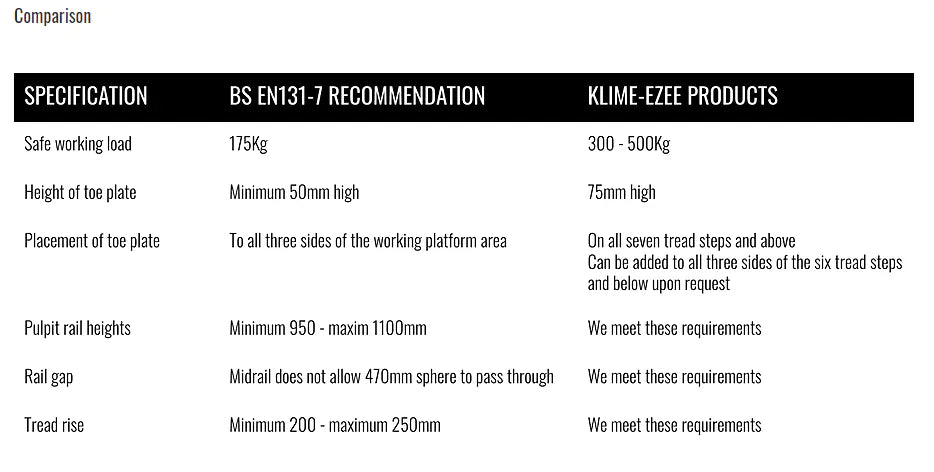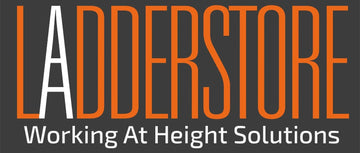Introduction
When it comes to warehouse steps, our customers are often confused with the standards and what requirements they need to look out for. This article will hopefully clear up that confusion and give you piece of mind when purchasing a warehouse step for your workplace.
Does EN131 cover warehouse steps?
There are multiple versions of the EN131 standards which cover different types of equipment for working at height. For example, the standard for telescopic ladders is EN131 Part 6, the standard for warehouse steps fall under EN131 Part 7, mobile ladders with a platform. The full breakdown of the EN131 standard can be found below:
BS EN 131 Part 1:2015+A1:2019 – Ladders – Terms, types functional sizes
BS EN 131 Part 2:2010+A2:2017 – Requirements, testing, marking
BS EN 131 Part 3:2018 – Marking and user instructions
BS EN 131 Part 4:2007 – Single or multiple hinge joint ladders
BS EN 131 Part 6:2019 – Telescopic ladders
BS EN 131 Part 7:2013 – Mobile ladders with platform
What is required of BS EN131-7?
BS EN131 Part 7 sets out specific requirements and specifications to manufacturers, to enable them to design and manufacture a high-quality product. As part of EN131-7 the requirements of the standards include; minimum and maximum dimensions for toe plates, rail heights, rail gaps and tread rise. More information can be found on the dimensional requirements further down in the article.
What are my options for certified steps?
When it comes to warehouse steps that are approved and manufactured to EN131-7, unfortunately your options are limited, this of course puts buyers and ladder users in a difficult position when purchasing warehouse steps. Redhill are one of the few manufacturers in the UK that manufacture to these standards, if looking for a certified step the Premier Standard Approved Warehouse Step is an excellent choice alongside the BS Classic Mobile Safety Steps
The main reason for a lack of availability with EN131-7 warehouse steps is mainly commercial, the associated costs of putting warehouse steps through testing is high and often noted manufacturers would not see the benefit. Of course this isn’t the only reason, there are many warehouse steps on the market that are not certified because they would simply fail testing.
How Do You Ensure Non-Certified Warehouse Steps Are Safe For Use?
As a business we pride ourselves on providing a safe and suitable product for all work at height, and providing safe warehouse steps is no exception. When taking on suppliers of warehouse steps we will visit their premises and test their product looking at specific specifications regarding the standards.
As an example, our most popular supplier of warehouse steps is Klime-ezee. Their steps are not certified to EN131-7 however they exceed the measurements and specifications required. As an example, they have provided a comparison to their product and the requirements outlined in BS EN131-7 below:

Klime-ezee are also so confident in the quality of their products they offer an extended 5 year warranty for extra piece of mind. The KE range is our most popular warehouse step and the feedback and reviews speak for themselves. The KE range comes in heights upto 3.75m and can be easily customised, each step is made to order in the UK, they are also ISO 9001 accredited. We have a wide range warehouse steps on our website including industrial wide steps, truck dock steps for vehicle access and narrow aisle warehouse steps with customisable options.
Further Information
If you still have any uncertainties regarding safe working at height and purchasing warehouse steps for your business don’t hesitate to get in touch with our expert team. We can be contacted by calling 01204590232 or use our online form.

